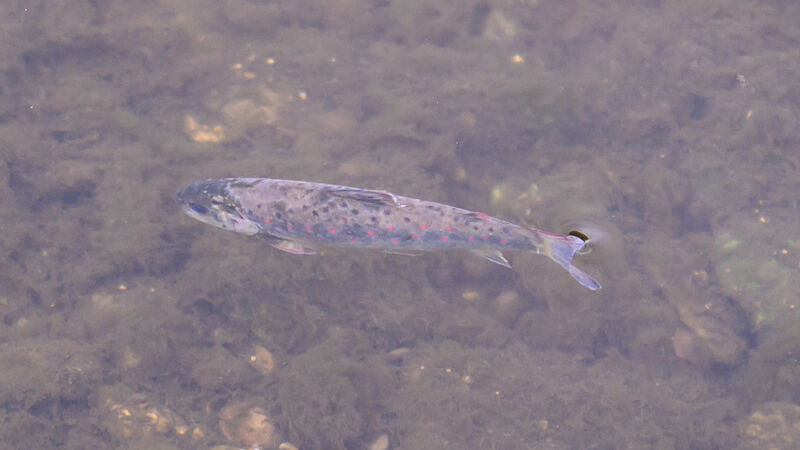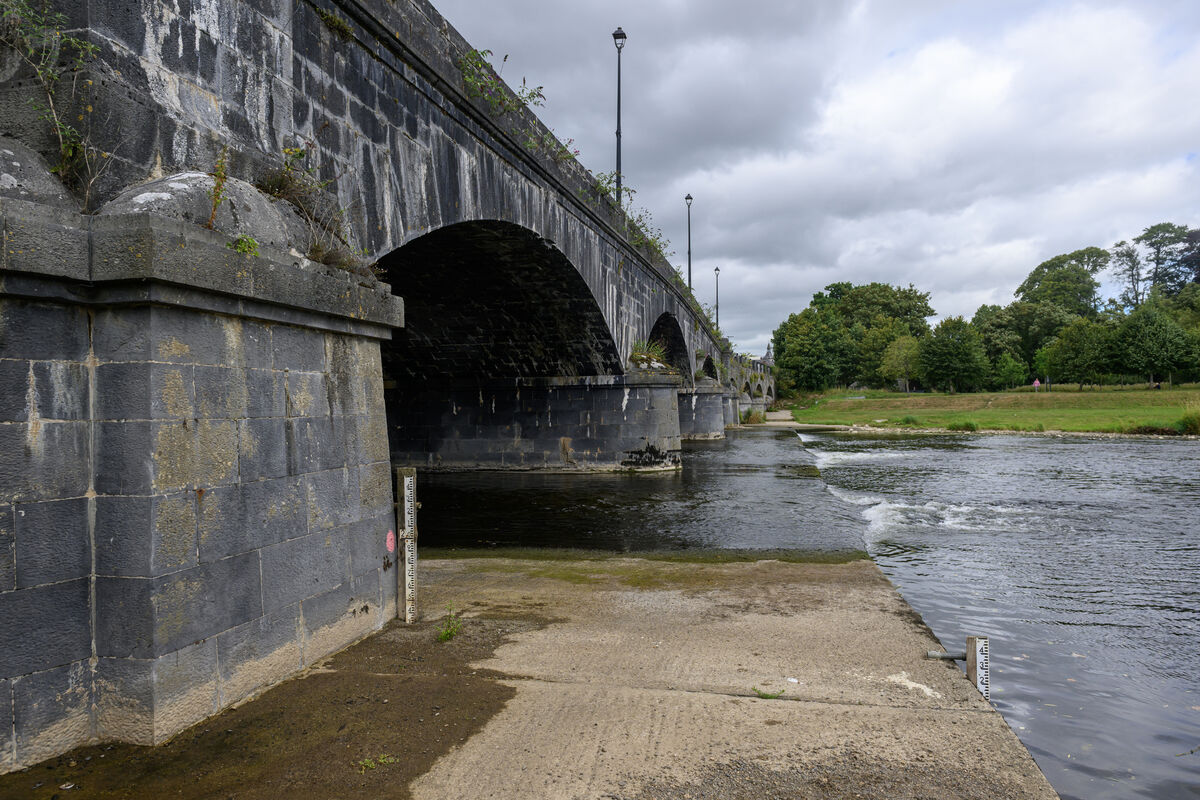Shocking indifference to catastrophic Blackwater pollution is a sign of the times

One of the fish affected by the recent fish kill in the River Blackwater, Co Cork. File picture: Dan Linehan
IT is almost a month since something around 50,000 fish – primarily trout and the vanishing remnants of a decimated salmon population – were killed in the River Blackwater. The catastrophe has the unenviable status of being the worst fish kill in the history of this Republic. To date, it has not been possible, despite the efforts of four State agencies and a visit by Minister Timmy Dooley supported by the usual platoon of hangers on, to identify the origin of the deadly toxin. Any meaningful legal response becomes more unlikely with every day that passes.
The immediate response was entirely predictable and justified. Anglers and conservationists were outraged and couldn’t imagine penalties severe enough for those responsible. Suspicions around who might be culpable quickly became beliefs, a process fuelled by the shameful record of North Cork Co-operative Creameries. This milk processor has been convicted of myriad breaches of legislation and the terms of its Environmental Protection Agency (EPA) licences. That the adjacent River Allow, a Special Area of Conservation, had in June 2024 been decimated by a chemical spill at an Uisce Eireann plant at Freemount added to a tinderbox atmosphere.
As late as February, 2024 North Cork Co-op pleaded guilty to eight charges of breaching the conditions of its emissions licence. Water samples taken by the EPA at its facility after the fish kill found that ammonia levels 52 times the legal limit, and orthophosphate levels two-and-a-half times above the limit, were dumped into the River Allow during a ten-hour period on the night of the fish kill. The EPA has made eight site visits to the creamery since June 24. Since then, the EPA has issued 22 non-compliance notices to the Co-op including 13 related to breaches of emissions limit values. How many breaches before the plant is closed? 122?
Despite that litany, the EPA this week exonerated the milk processor saying it does not believe the creamery could have caused the fish kill.
CLIMATE & SUSTAINABILITY HUB

One of the things that could easily be done would be what’s done in Iceland - placing permanent pollution monitors in all vulnerable rivers. These relatively cheap alarms provoke phone alerts once an unexpected event is detected.
This would be a plausible response even if it is all too easy to imagine who might oppose it. It would also obviate unfounded assessments which early in this saga erroneously pointed to the possibility of a fungal infection causing the calamity.

- Jack Power is a former associate editor of the Irish Examiner and an angler













